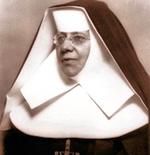Fathers of the Church
Epistle LXII: to Romanus, Guardian
by Gregory the Great in 590-604 | translated by James Barmby, D.d
Gregory to Romanus, &c.
It has come to our ears that the tonsuratores in Sicily, with wicked presumption, take to themselves the name of defensores, and that they not only are of no utility for the interests of the Church, but also take occasion hence to commit many irregularities. Consequently we enjoin thy Experience by this present authority to enquire diligently into this. And, if thou findest any, besides those who have letters to empower them in such business, usurping henceforth this title, put a stop to this thing by strict correction. If, however, thou shouldest discover any who have proved themselves active and faithful in ecclesiastical affairs, thou must send us a full and particular report of them, that we may judge whether they are worthy of a letter.
Furthermore, we desire thee to make a thorough examination of the accounts of Fortunatus; and, when he has satisfied all the debts that appear against him, allow him no longer to have to do with the patrimony, or with any action of our Church, seeing that, as we have heard, he has conducted himself in such a manner that he ought not henceforth to have any communication with our people.
Furthermore, it has been reported to us that one Martianus, who has assumed to himself the name of a defensor, has declined to pay obedience to our brother and fellow-bishop John, to whom we had committed the charge of our patrimony. Inquire therefore; and, if it is true, let him be sent into exile, that his disobedience to him from whose Church he has seized for himself a false title of honour, and who is promoting the interests of the same, may not go unpunished. But, if there are also any others disobedient to the orders of our said brother, thou wilt by all means visit them with strict punishment.
Taken from "The Early Church Fathers and Other Works" originally published by Wm. B. Eerdmans Pub. Co. in English in Edinburgh, Scotland, beginning in 1867. (LNPF II/XIII, Schaff and Wace). The digital version is by The Electronic Bible Society, P.O. Box 701356, Dallas, TX 75370, 214-407-WORD.



